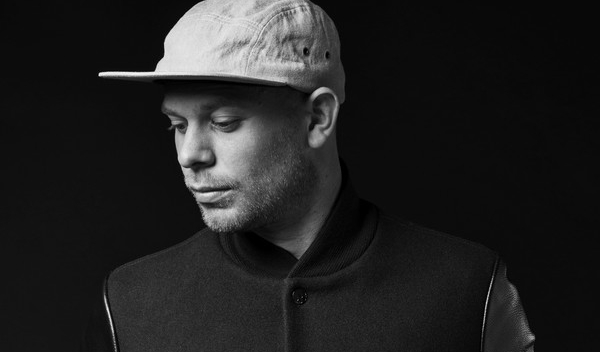Has there been a highlight of his experiences in Asia? “The last Saturday night in Saigon: I played for nine hours straight in a club that’s now shut down. It was so beautiful. There was just me and ten people left and the connection got so intense and spiritual, it wasn’t just me playing anymore, it was an experience we made together. The sun came up…what it did to me in that moment of time was intense and elevated. It was so magic I decided to stay in Vietnam; they asked me to do another night.” That second show in Saigon was accompanied by a screening of music documentaries Trago presented. “To show people where I come from,” he explains. Trago has been devoted solely to music since the age of 15. “I love to share my inspirations.”
Trago’s musical style is described as a blend of disco, boogie, synth funk, Detroit techno and more. Beat asks him how he himself would talk about it. “I try and come up with a new name for it whenever a journalist asks me that,” he says. “I’ll say it’s b-boy house with a disco twist.” How does he make sure he stays fresh and relevant? “Start by having inspiring people around you. In Amsterdam young musicians and producers are endeavouring each other in their nightlife, they inspire each other. Having people whose edges are sharp and who are honest with you about your material. You look for reflection not only in yourself but in other people you can trust. You can change your work flow, change your studio set up. You can limit yourself to using only a few pieces of older equipment – there are quite some things you can do to stay on top.”
Trago sees himself shifting away from a traditional club feel in his work. “I don’t want to completely lose the club beats but I want to work on music that’s outside music that’s made for clubs, use fewer drums, not lose them completely and still keep the repetitiveness, but let these things go a bit. There is so much I want to explore: contemporary minimal music, working with orchestras, a few trance tracks.”
How is it that a DJ can become so internationally famous? Surely their work needs to be experienced live? Trago explains: “Nowadays the word ’DJ’ is now shorthand for people who spend a lot of time in studios, who is playing and producing in a studio. Being a DJ in a club is a way to outlet what you’re doing in your daily life, which is the art of making music. Some of them get famous, some of them don’t but they do make beautiful music.
“As a DJ, label owner and producer one of my main goals is to influence and inspire people to try something new, to take their music to a new level. That’s an important task a DJ should be doing. I always look for local music and connect with local musicians and collect their recordings. I get a feel for what’s going on. I map out what’s happening in the world and take something from the local music scene.” Does Trago have preferences as to equipment? “It varies. The piano – I try out rhythms and melodies. The MPC 2000, a machine that’s been around for 25 years. A series of drum machines; Rawlings 8078, 707. The Loop Station is an amazing machine. You go into that repetitive zone. By using that machine you can be a whole orchestra yourself.”
Who does he hold high? “Theo Parrish. He’s a special DJ. He’s one of the guys who got me into house music and techno. I’ve seen him perform about 20 times. When I was in New York about three weeks ago he was playing and I went to check him out again. Francois K is a legend. These guys have been doing it for over 25 years; they’ve paid their dues. They inspire me so deeply. They are strong influences who inspire me to see things clearly on a lot of levels so I can change a lot of things. On a local level Voyage Direct are Dutch producers I work with, they make avant grade dance music and inspire people to release their own music. They inspire people to change their music and release their music. They get involved in a lot of process that happens before tracks go into the world.” Can Trago see his influence on his local music scene? “I’ve touched a lot of things,” he says. “My label is a part of the independent music scene in Amsterdam. I just hope to tell people about independent music from Amsterdam.”
BY LIZA DEZFOULI

